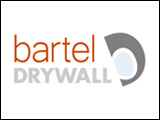Tax Tips for the Business Owner
As an entrepreneur, dealing with the day to day operation of your business, not to mention trying to plan for the future, consumes a lot of your time. Paying less tax, although important, may not always be top of mind.
There’s no time like the present to ensure you are taking full advantage of all the tax minimization strategies available to you. As you review these key tips consider how you may be able to apply one or more to you and your business.
Employ your spouse and children
Whether you carry on your business personally or through a corporation, you should consider paying a salary to your spouse and/or children. Canada’s progressive tax system, which assesses high income earners with even higher tax rates, provides an incentive to split income with family members in a lower tax bracket. Paying a salary to a spouse and/or child who pays tax at a lower rate than you can create next tax savings. But, you must ensure that the salary is reasonable for the services they perform for the business.
Incorporate your business
If your business produces more profit than you need to satisfy your personal cash flow needs, then incorporation could produce a sizeable tax deferral by accessing the lower small business tax rate for active income. This deferral benefit, however, is only available if the profits are left in the company. The longer the profits are left in the company, the larger the tax advantage. It is important to note that investment income earned of prior deferrals and rental income do not receive this lower rate.
The tax deferral achieved through incorporation can create a permanent tax saving if the shares of the business are eventually sold and are eligible for the $750,000 capital gains exemption. However, if you are incurring losses this will not be the best option.
Additional advantages could be having family members own shares to have access to multiple capital gains exemptions, paying out dividends to family members who are taxed at a lower rate and receive creditor proofing from the limited liability. We can help determine which strategies work with your situation.
Invest excess cash
Since the biggest bang for your tax buck is accomplished by leaving profits in the incorporated company, the question becomes what to do with those profits. If repaying debt or reinvesting in the business operations are not options, then a smart investment plan is your best alternative. Choosing the right investments for the excess cash inside the corporation should follow the same rules as investing your personal money such as the principles of asset allocation and diversification. The benefit of this strategy is realized in active businesses rather than investment holding companies.
Plan for your retirement
In order to make the maximum allowable Registered Retirement Savings Plan (RRSP) contribution next year, you’ll need to create the contribution room this year by maximizing reported earned income. If you incorporated, you will want to review the best dividend/salary mix for your situation. As part of your overall plan, you may also want to make a contribution to your TFSA. Talk to us about achieving balance in your personal investment plan given all the variables and hot it will fit with this year’s maximum contribution limits for business owners.
Don’t forget to think about RRSP contribution room when setting and reporting remuneration for services provided by family members who also work in the business.
It’s also recommended that incorporated business owners explore an individual pension plan (IPP). An IPP is ideally suited to business owners in their mid-forties or older who have a past history of earning employment income from their company in excess of $100,000 per year. An IPP will allow you to shelter even more earnings from tax than your RRSP while still offering some protection from creditors.
Prepare for the sale of your business
It’s never too early to plan your business exit strategy. If you’re planning on selling all or part of your business at some point, confirm with your Accountant that you’re eligible for the small business capital gain exemption.
Make use of R&D expenses
Expenses related to research and development activities incurred to develop and enhance your products and production processes, may qualify for valuable tax incentives in the form of refundable and non-refundable tax credits. While the guidelines governing program eligibility can be complicated, a wealth of information is available at the Canada Revenue Agency to help you assess your eligibility for the program.
Unfortunately, we can’t eliminate taxes. But, we can use wise business practices to minimize or defer income taxes that would otherwise be payable. These are only a few of the tax-planning opportunities available to you as a business owner. Talk to us about a complete tax check-up to help identify all the tax planning strategies available to you. After all, the tactics you employ today will help you reap rewards at tax time next year.
This column, written and published by Investors Group Financial Services Inc.(in Québec - a Financial Services Firm), presents general information only and is not a solicitation to buy or sell any investments. Contact your own advisor for specific advice about your circumstances. For more information on this topic please contact your Investors Group Consultant. Insurance products and services are distributed by I.G. Insurance Services Inc. (in Québec - a Financial Services Firm). Insurance licence sponsored by The Great-West Life Assurance Company outside of Québec.



